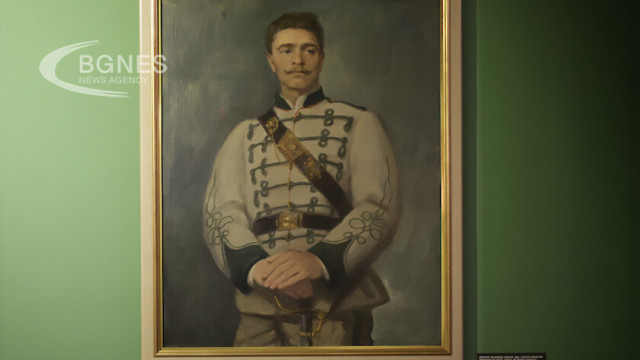An new educational program of the National Military History Museum will introduce children and their parents to the revolutionary activities of the Bulgarian National Hero Vasil Levski, BGNES reported.
The program is implemented in three modules, explained the curator at the museum, Slaveya Surcheva.
In the first module, experts talk about the ideals of the Apostle of Freedom (this nickname of Vassil Levski is ultimately widespread among the Bulgarians - editor's note). "We tell in detail how he created his organization and how he tried to keep it secret. We will talk about the passwords, the secret names, about the codes that Levski created to send letters. These are very curious facts that are not advocated in history lessons, i.e. we are upgrading the knowledge in schools about it," said Surcheva.
The second module includes a showcase with items that belonged to Levski.
"Touching the Apostle's hair is the most emotional. After deciding to give his life for the freedom of Bulgaria, he cut off his monastic hair and gave it to his mother. The idea is that if he loses his life away from his home, she will be able to commemorate his death. This turns out to be a prophecy. The hair was kept by his mother and before her death she gave it to Levski's sister Yana. At the beginning of the 20th century, she in turn handed the hair over to the Minister of Education with the idea of keeping it in Sofia, where Levski lost his life," said Surcheva.
In the display case there is also a cross that was given to Levski by his uncle Archimandrite Vasiliy. During restoration work in 1973, a cache was discovered in the back of the cross, in which a strand of hair was found. "Then the museum sends that strand along with some of the the monastic hair to the Institute of Criminology. It turns out that the hairs are absolutely identical. During the analysis, Levski's blood type is also determined. It is zero. This is a metaphor for his life, because people with zero group can donate to everyone, but can only accept from their own," Slaveya Surcheva said.
Levski's revolver - Gasser model 1870, in front of which he swore to his comrades, is also presented in the exposition.
In the third module, children will be able to put into practice what they have learned. They will be able to decode an original letter of the Apostle of Freedom and understand what he meant.
"We have to delve into the small details, because they show us what kind of people lived 100-150 years ago. By getting to know them better, we realize the power of their work and what they have done for us. This is Levski's message to us - to be responsible not only to ourselves, but also to our entire people and our country," commented Slaveya Surcheva. /BGNES







